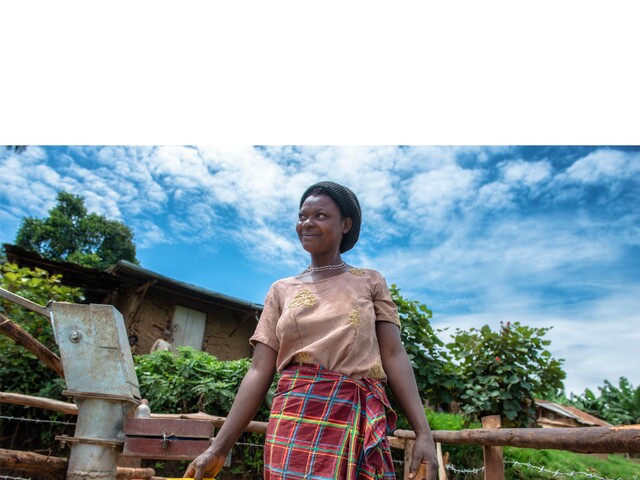
Explore our pages
Narrow down your search by using the filters. Dive deeper using advanced search.
Please find below your results. You can filter results or use our Resources: Advanced Search facility.
Stories and lessons learned from collective action by organisations supported by the Conrad N. Hilton Foundation and their partners. Read more...
What impact did we have in our focus countries in 2019? Sharing highlights from IRC's Annual Report . Read more...
This working paper sets out the thinking behind IRC's use of learning alliances, offers practical guidance on how to adopt the approach and build a... Read more...
New book tells how partnerships, district planning and learning alliances achieve impact at community level in Ghana. Read more...
A strategic partnership has broken down barriers between those who plan, provide and use services enabling them to 'walk the talk' of coordination... Read more...
Paper underlining the importance of learning for better performance in the WASH sector and to contribute to the discussion on how this can be... Read more...
Between 2009-2014 IRC through the Triple S project supported Ghana's rural water agency CWSA to build consensus around a new vision of adequate water... Read more...
Driving, catalysing, supporting, acting as a backbone to foster sector change is what IRC is all about. Read more...
This experiment consisted of a study to assess the significance, efficacy and sustainability of the learning alliance approach in influencing learning and adaptive capacity in the rural water sector in Ghana. Read more...
'Collective impact is the commitment of a group of actors from different sectors to a common agenda for solving a complex social problem'. Read more...
The capacity to continuously learn and adapt is critical for dealing with complex challenges and future uncertainties. In this first blog in a series about 'a learning and adaptive sector', we discuss why learning is central to achieving water, sanitation and hygiene (WASH) services for life. Read more...
A study on the Learning Alliance Approach in Ghana, commissioned by IRC under the Triple-S project has concluded that the Water Sanitation and Hygiene (WASH) sector in Ghana is very vibrant in experience sharing, documentation and dissemination, but recommended institutionalising a guiding model... Read more...
A study on the Learning Alliance Approach in Ghana, recommends a guiding model for a more systematic process of building up and deploying knowledge to better influence policy, programming, and practice. Read more...
A study on the significance of the Learning Alliance Approach in influencing learning and adaptive capacity in Ghana's rural water sector Read more...
A report from the launch of the Regional Level Learning Alliance Platform for Ghana's Brong Ahafo region. Read more...
A new paper from Triple-S Ghana offers insights into WASH efforts in the county's rural domestic water sector. Read more...
“There is the need for sector learning to address challenges facing the water, sanitation and hygiene (WASH) sector in Ghana,” says Regional Director of the Community Water and Sanitation Agency. Read more...
A vision for water management and water related services in the city of Accra of the future, a comprehensive situational analysis, and strategic... Read more...